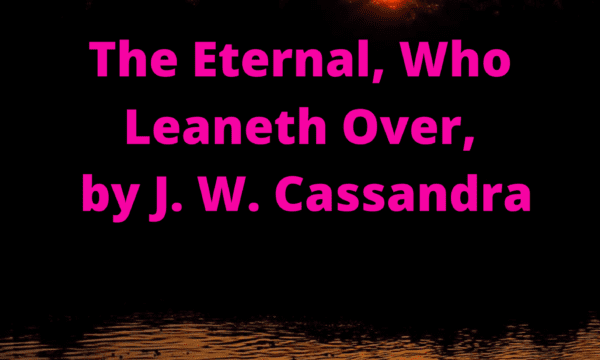
The Eternal, Who Leaneth Over, by J. W. Cassandra: This poem continues the previous double poem “You Came on the Night of Lights – Leave in the Light of Nights!” that is built on multiple contrasts. The double poem can be seen from aspect thesis and synthesis or duality. This poem is the synthesis or abslovation. The 3 poems altogether belong to my volume 14, “Ten Million-fold Sun / Day” *, cycle “He Steps out of His Mirror”. I placed them next to the “Herald of Truth”. They altogether bear a certain hermetic meaning. I shar both the English and the Hungarian version of this poem. Illustration is by Ambir Tolang, from Pixabay. I hope, you’ll read all the 3 poems, one after the other and you’ll like them! * The Hungarian word ‘nap’ is a homonym in Hungarian with the meanings ‘sun’ and ‘day’. I prefer in my volume the previous one.
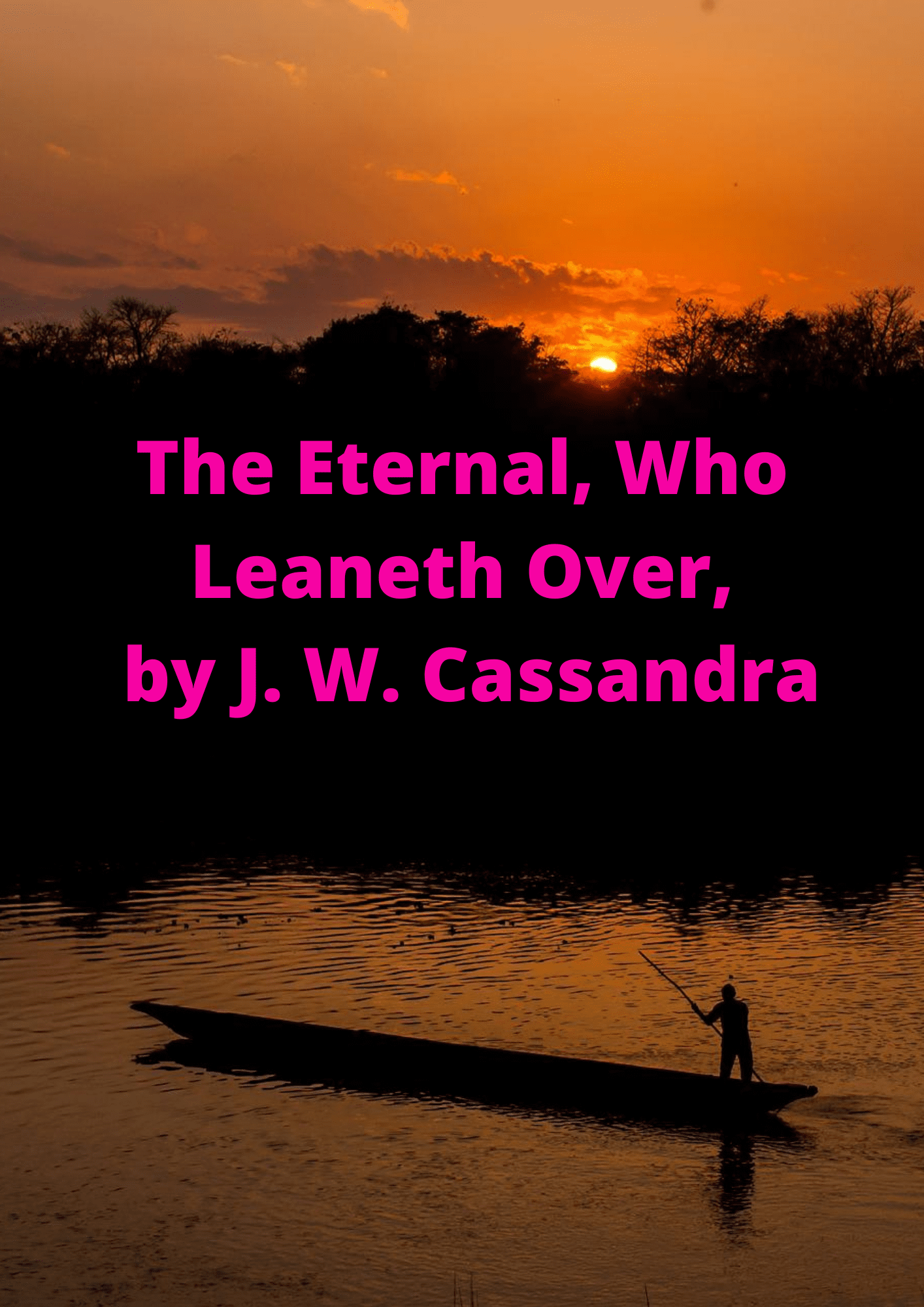



J. W. Cassandra: Jöttél fények éjén – távozz éjek fényén!: a vers sokszoros ellentétre épül és 2 versből áll, amelyek szorosan összetratoznak, ugyanakkor ellentétet is alkotnak. Szemlélhetők a tézis – antitézis aspektusából is. A 3. verset is megírtam hozzájuk, azt is meg fogom osztani. Ez a páros vers a dualitásról szól. A verset a 3.-kal a 14., “Tízmilliószoros Nap” című kötetembe raktam, a “Tükréből kilép” ciklusba, “Az Igazság heroldja” című versem mellé. Ezek a versek együtt bizonyos hermetikus jelentést hordoznak, míg ez a kettős vers samanisztikus színezetű is egyben. Az angol változatot is megosztottam, ott megadtam a ‘nap’ homoníma magyarázatát is. Illusztráció: WorldInMyEyes, Pixabay. Ez után fogom megosztani a 3. verset, “Az Örök, ki áthajol” címűt. Remélem, tetszeni fognak. (You Came on the Night of Lights – Leave in the Light of Nights!, by J. W. Cassandra: The poem is built on multipled contrasts and consists of 2 poems, belonging tightly to each other and making opposites. It can be seen from aspect of thesis and antithesis, as well. I wrote to it a 3rd poem, a synthesis, I’ll share it here, as well. This double poem in itself tells of duality. The poem I placed along with the 3rd one to my volume 14, “Ten Million-fold Day / Sun”, cycle “He Steps out of His Mirror”, next to my poem “Herald of Truth”. These poems altogether bear a certain hermetic meaning, while this double poem has some shamanistic hue, as well. I shared before this poem the English version, as well and I gave there the explanation on the homonym ‘nap’ (‘day’ or ‘sun’). Illustration is by WorldInMyEyes, from Pixabay. And after these poems I’ll post here the 3rd one “The Eternal, Who Leaneth Over”. I hope you’ll like it.
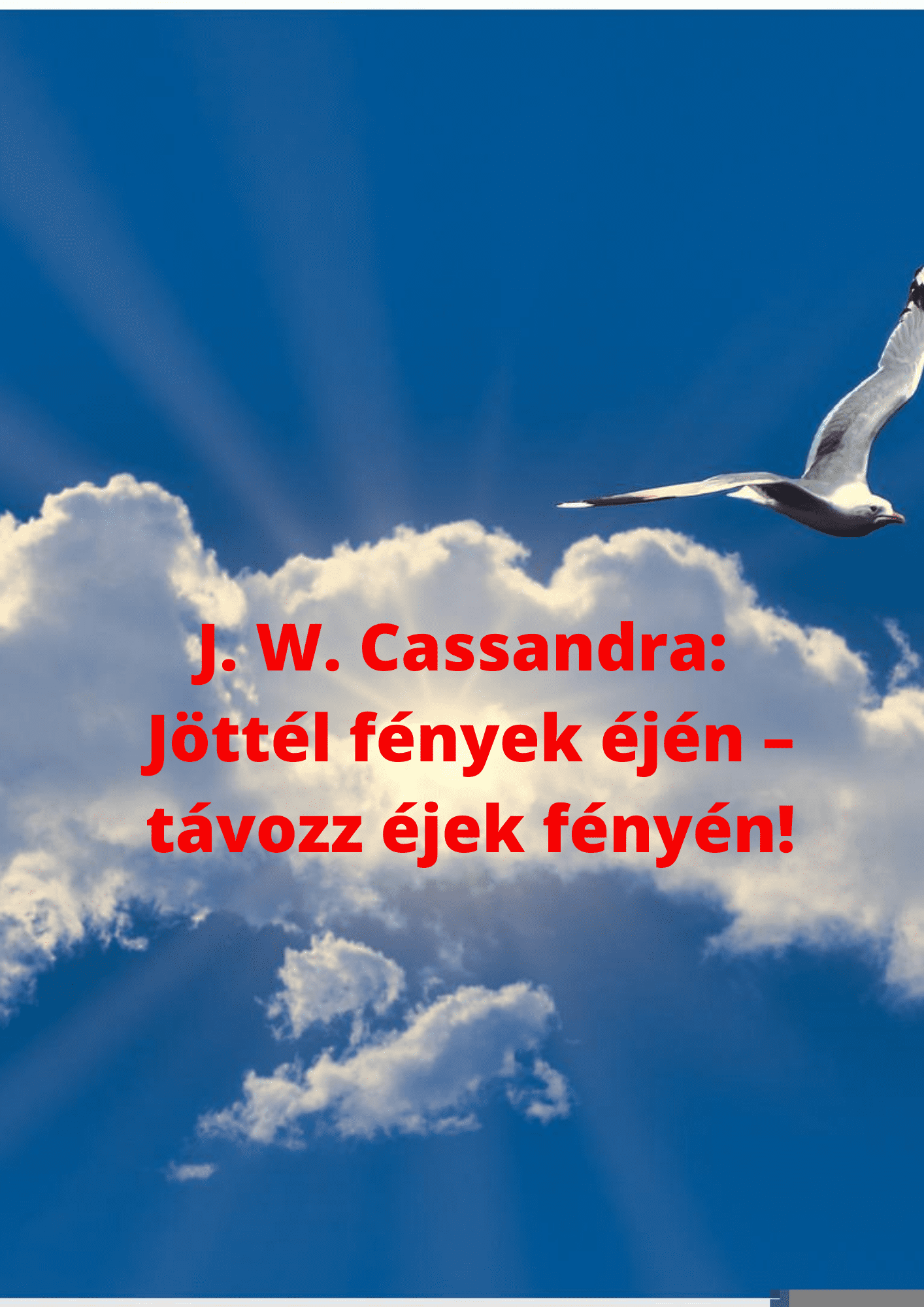

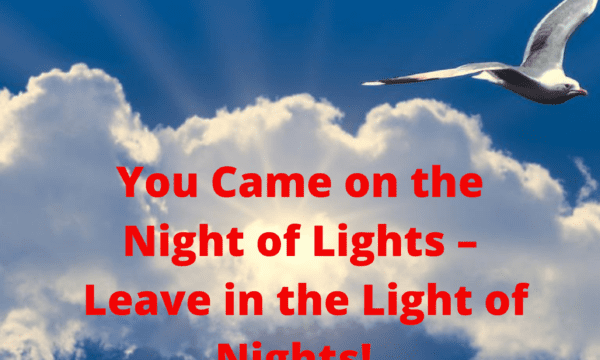

You Came on the Night of Lights – Leave in the Light of Nights!, by J. W. Cassandra: The poem is built on multipled contrasts and consists of 2 poems, belonging tightly to each other and making opposites. It can be seen from aspect of thesis and antithesis, as well. I wrote to it a 3rd poem, a synthesis, I’ll share it here, as well. This double poem in itself tells of duality. The poem I placed along with the 3rd one to my volume 14, “Ten Million-fold Day / Sun” *, cycle “He Steps out of His Mirror”, next to my poem “Herald of Truth”. These poems altogether bear a certain hermetic meaning, while this double poem has some shamanistic hue, as well. After the English version I’ll share here the Hungarian one. Illustration is by WorldInMyEyes, from Pixabay. And after these poems I’ll post here the 3rd one “The Eternal, Who Leaneth Over”. I hope you’ll like it. * The word in Hungarian is a homonym, it means both ‘sun’ and ‘day’. I prefer its meaning ‘sun’ in my volume.
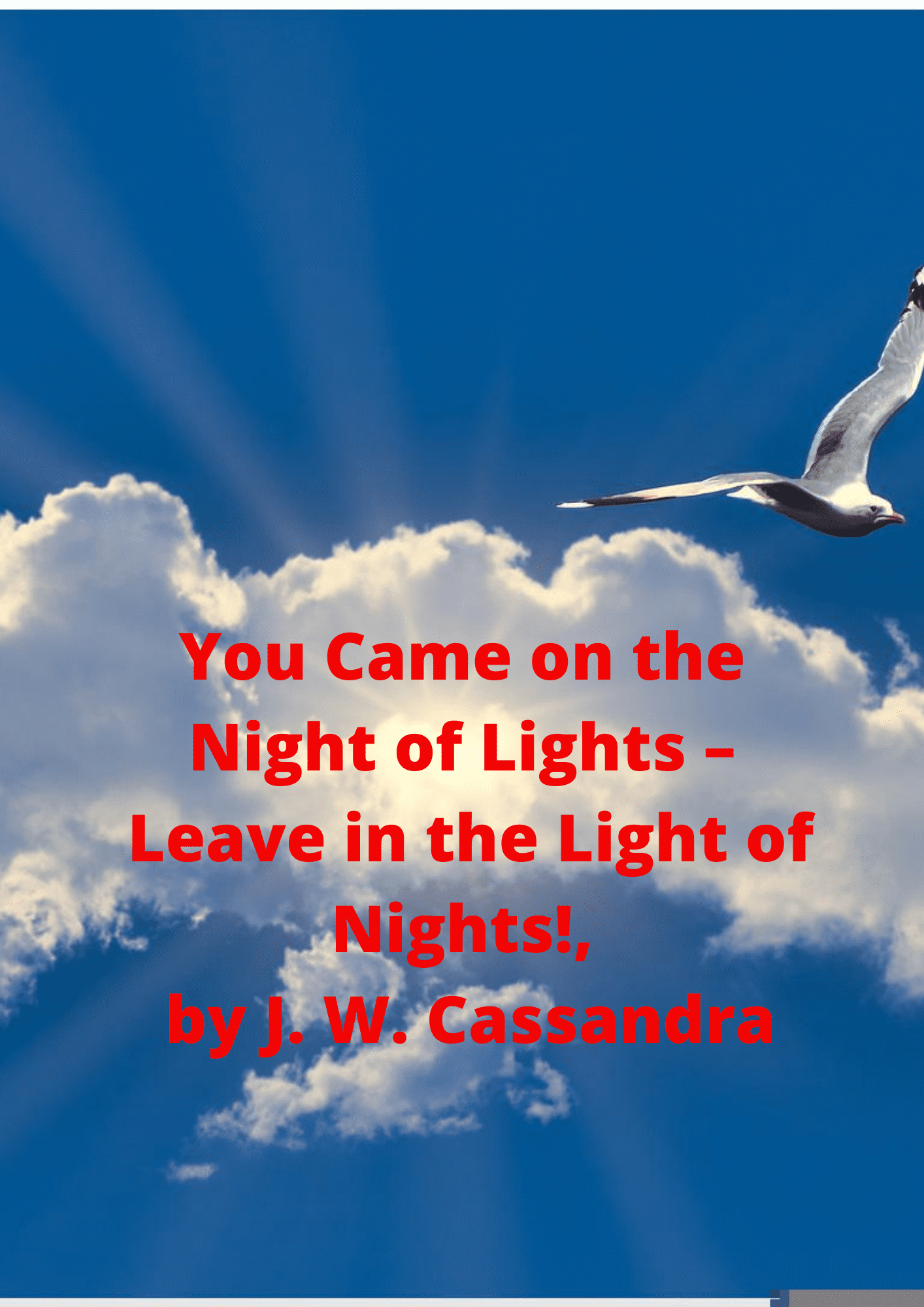



J. W. Cassandra: Vérvörös szégyenben: ez a kis vers szabálytalan, ráadásul mintegy egy hónapja írtam, egy gyönyörű vérvörös juharfákkal körülvett japán templom fotóját látva. Az a fotó nem az enyém. A vers műfaja kicsit vallomás is. Elször angolul írtam meg, azután magyarul is. Még nem raktam be egyik kötetembe sem, majd később fogom. Itt mindkét versváltozatot megosztom, egymás után. Illusztráció: Adam Derewecki, Pixabay. (In a Bloodred Shame, by J. W. Cassandra: this little poem is irregular and I wrote it almost a month ago, glancing a photo of a Japanese temple surrounded with beautiful bloodred maple trees. That photo I don’t own. The genre of the poem is a kind of confession. I wrote it first in English then I wrote it in Hungarian, as well. I didn’t place it into any of my volumes yet, I’ll do it later. I share here both the poem versions, one after the other. Illustration is by Adam Derewecki, from Pixabay.)
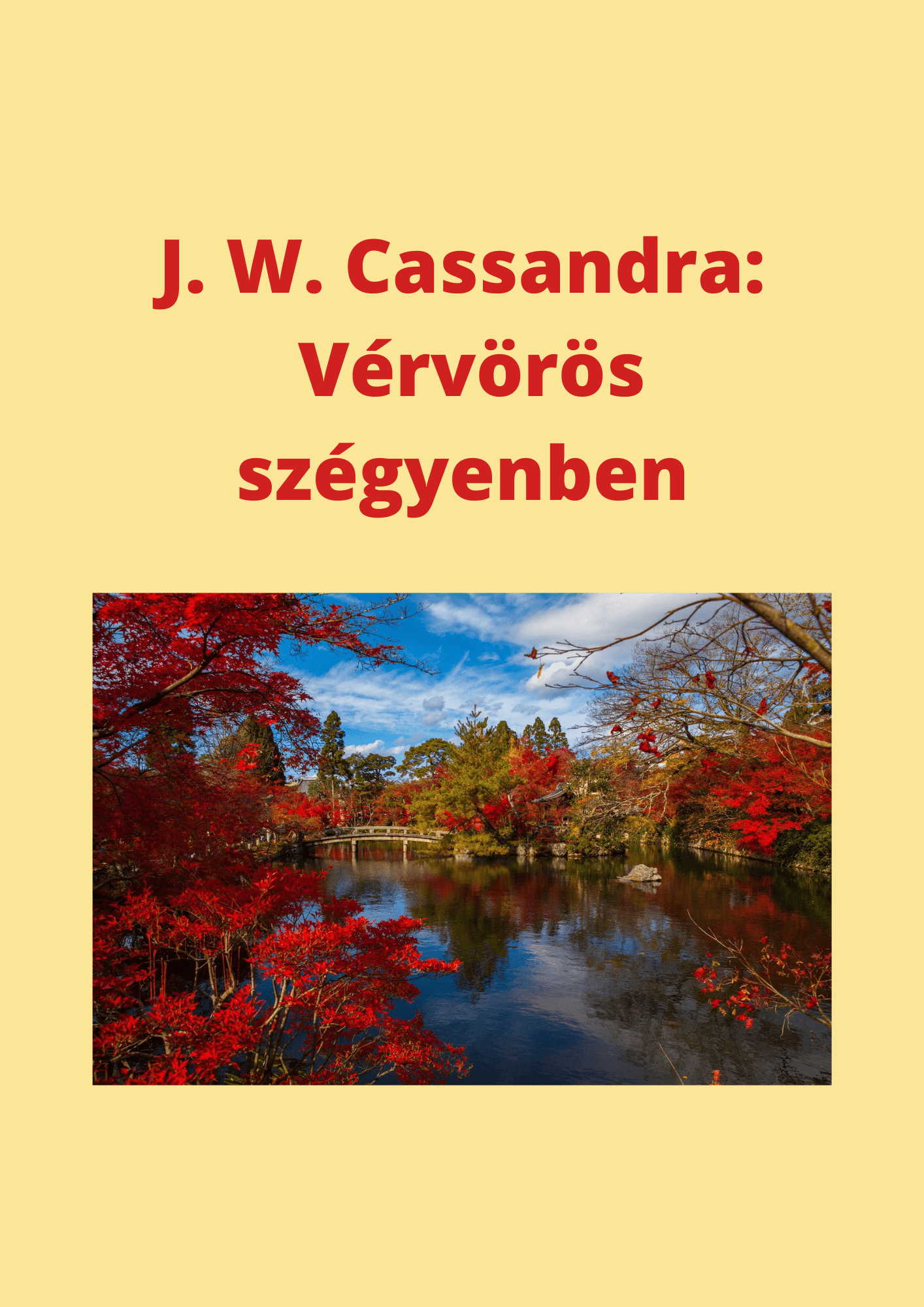



In a Bloodred Shame, by J. W. Cassandra: this little poem is irregular and I wrote it almost a month ago, glancing a photo of a Japanese temple surrounded with beautiful bloodred maple trees. That photo I don’t own. The genre of the poem is a kind of confession. I wrote it first in English then I wrote it in Hungarian, as well. I didn’t place it into any of my volumes yet, I’ll do it later. I share here both the poem versions, one after the other. Illustration is by Adam Derewecki, from Pixabay.
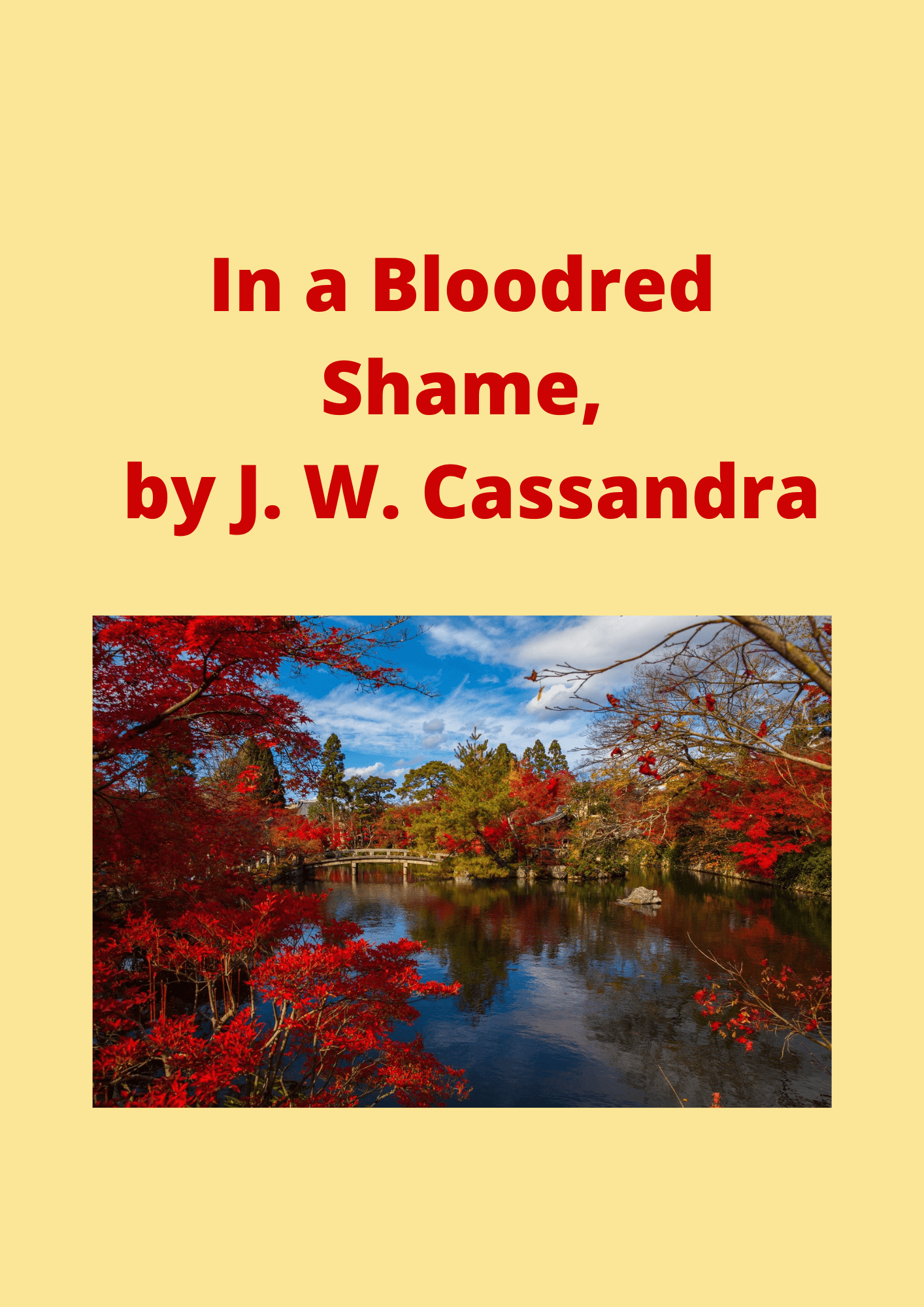



If I Had a Thousand…, by J. W. Cassandra: the poem I put into my volume 18, Absence, into its cycle If I Had a Thousand… The poem is free of its form. I had shared it in my website earlier. Now I share it in its entire length. I hope you like it. Illustration: Ancient Origins, from Google Images. I shared it before this one in Hungarian, too.




J. W. Cassandra: Ha volna ezer…: a verset a 18., Hiány című kötetem Ha volna ezer… című cilkusába raktam. A vers formailag szabálytalan. Korábban a weboldalamon osztottam meg teljes terjedelmében. Most itt is megosztom, remélem, tetszik. Az illusztráció Ancient origins, a Google Képek közül való. Angolul is megosztom ez után. (If I Had a Thousand…, by J. W. Cassandra: the poem I put into my volume 18, Absence, into its cycle If I Had a Thousand… The poem is free of its form. I had shared it in my website earlier. Now I share it in its entire length. I hope you like it. Illustration: Ancient Origins, from Google Images. I share it after this one in English, too.)




J. W. Cassandra: Örök tánc: ez a vers kivételes. Az illusztrációként beillsztett fénykép ihlette. Köszönet a tisztelt tulajdonosnak, barátomnak, aki nekem ajándékozta, és akivel együttműködve készítettük el ezt a verset: @khalnayak_2288 az Instagramról. Ő a poszt társszerzője. Hálás vagyok neki érte. Viszonzásul megosztottam vele a versem. Valamint mérhetetlenül boldog vagyok, hogy végre el tudtuk készíteni! Remélem, tetszeni fog. Az angol változatot lásd előbb! És sietve osztom meg itt a verset, hogy kedves barátom, Ritika Nahata még ma láthassa… (Eternal Dance, by J. W. Cassandra: this poem is an exceptional one. It was inspired by the photo that I pasted as an illustration. And I have to say great thanks to the respective owner, my friend who granted me his photo and with whom we made this post in collaboration: @khalnayak_2288 from Instagram. He is the co-author of this post. I’m grateful. And in return, I shared with him my poem. And I’m immeasurably happy to manage to do it at last! I hope you will like it. English version see before this one. And I share here this poem in a rush for my kind friend Ritika Nahata could see it yet today…)
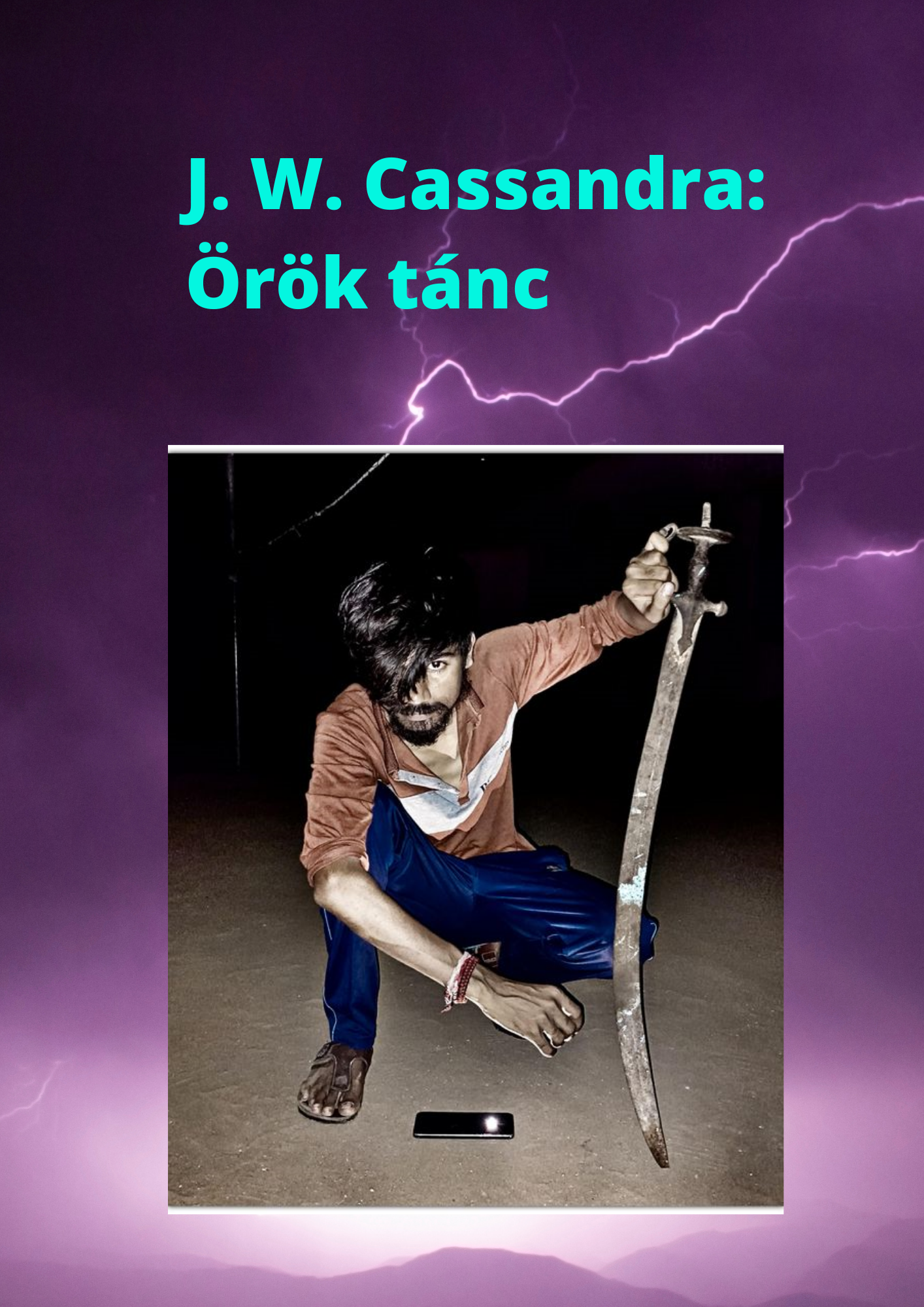



Eternal Dance, by J. W. Cassandra: this poem is an exceptional one. It was inspired by the photo that I pasted as an illustration. And I have to say great thanks to the respective owner, my friend who granted me his photo. We made this post in collaboration with @khalnayak_2288 from Instagram. He is the co-author of this post with equal rights than me. I’m grateful for his gift! And in return, I shared with him my post. And I’m immeasurably happy to manage to do it at last! I hope you’ll like it. And I share this poem in a rush now for my friend Ritika Nahata to see it here yet today certainly… 🙂 I will share after this version the Hungarian one, as well.
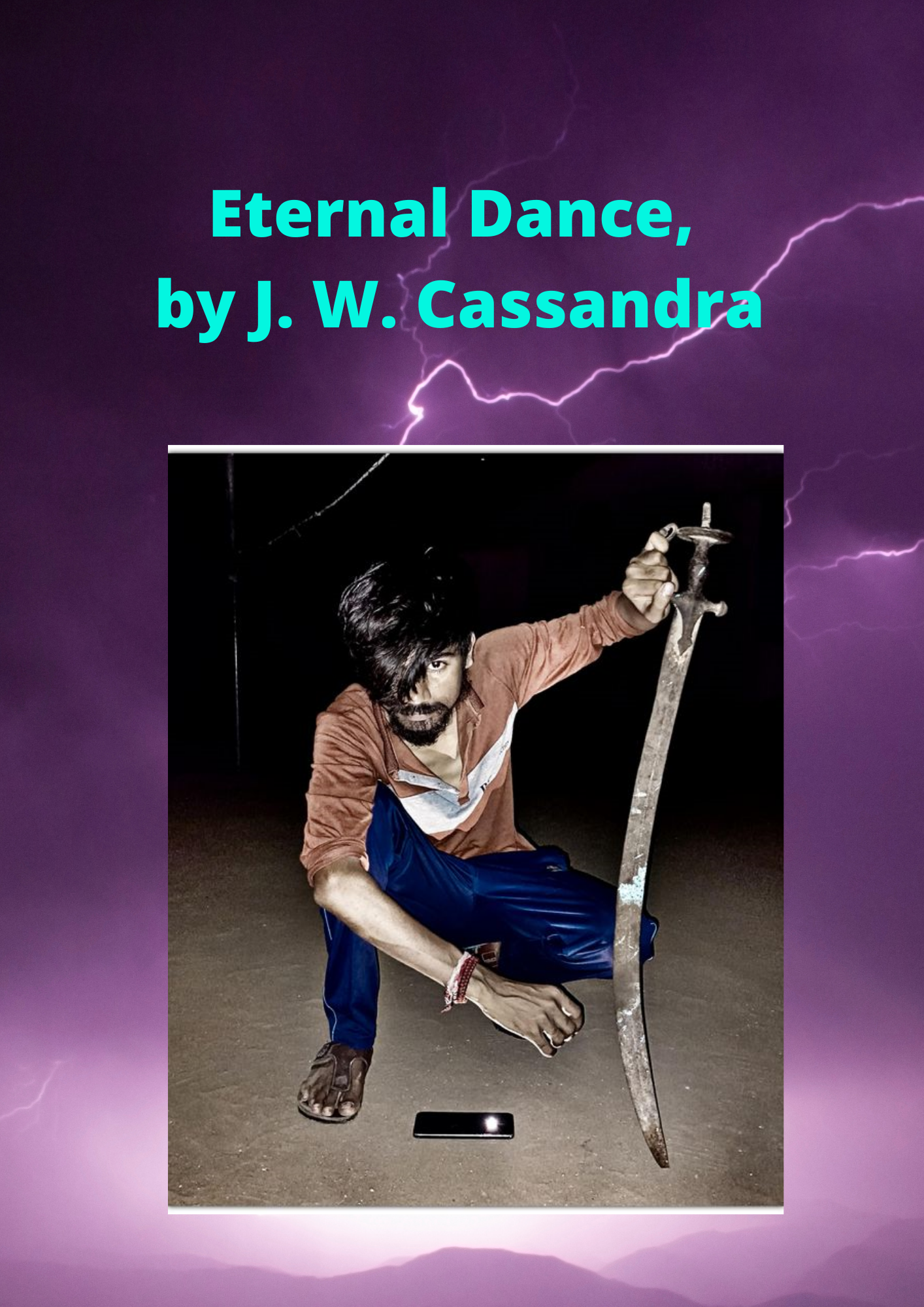



Rider O’ Rider Rider O’ dear rider you are riding a bike Don’t you be rash as no one does like The rules of terrific have to be followed Your whimsical nature here isn’t allowed…




Time is Ticking on the Wall of Silence, by J. W. Cassandra: my recent poem fits the passing of time. In a few days, we can call this year a bygone year, so it’s time to think of every moment of this year and ourselves in time… And according to philosophy, it’s time to put all of this behind us, taking up our footprint… The poem itself belongs to the cycle “In Tune with the Infinite”. After the English version, you can read the English version. I hope you’ll like it. The illustration is taken from Pixabay, made by uroburos or Bronislaw Drozka.
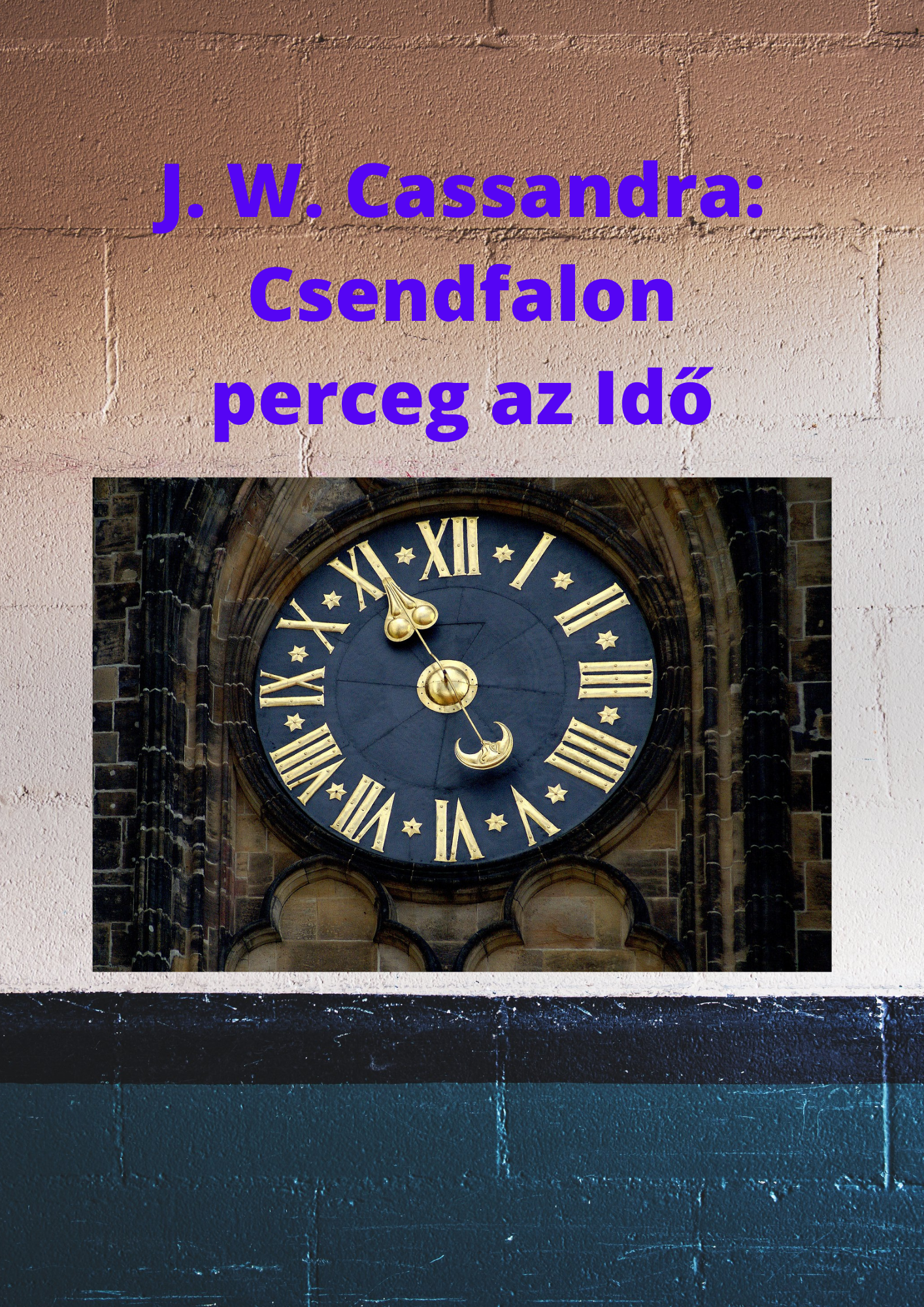



Time is Ticking on the Wall of Silence, by J. W. Cassandra: my recent poem fits the passing of time. In a few days, we can call this year a bygone year, so it’s time to think of every moment of this year and ourselves in time… And according to philosophy, it’s time to put all of this behind us, taking up our footprint… The poem itself belongs to the cycle “In Tune with the Infinite”. After the English version, you can read the English version. I hope you’ll like it. The illustration is taken from Pixabay, made by uroburos or Bronislaw Drozka.
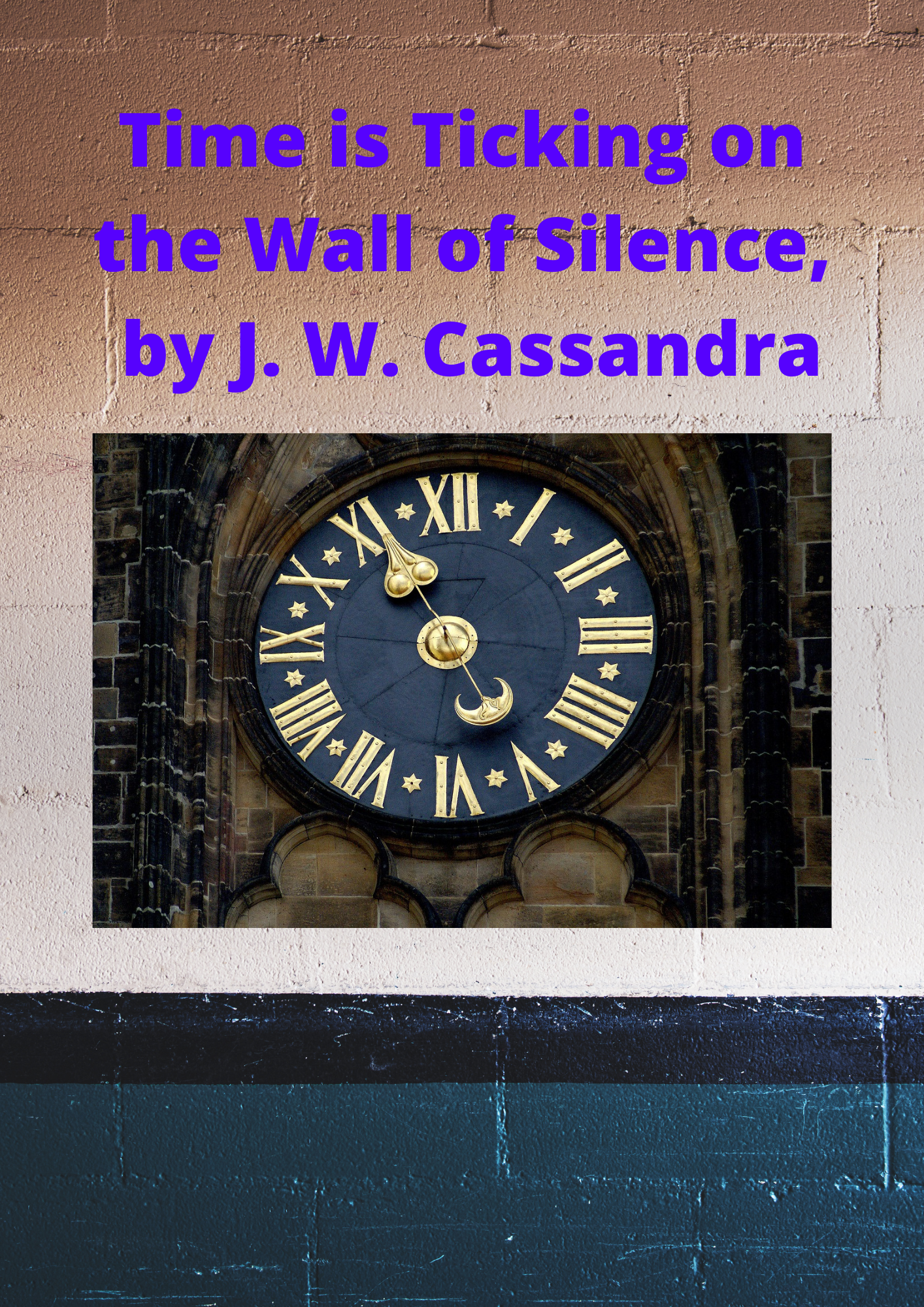



J. W. Cassandra: Szókratész búcsúbeszéde: a verset december 4-én írtam felébredés után. A gondolataimban keringett, és nem hagyott békén. Majd később felolvastam a lányomnak, aki azt mondta, hogy ez Szókratész valódi búcsúbeszéde… Így találtuk meg a címet. Eddig még nem raktam be egyik kötetembe sem. Megosztom az angol változatot is. Illusztráció: GDJ vagy Gordon Johnson, Pixabay. Festmény: Jacques-Louis David: Szókratész halála (1787). Remélem, tetszik, és nem lesz a “hattyúdalom”. 🙂 (Socrates’ Farewell Speech, by J. W. Cassandra: this poem was written on Dec. 04th, after awaking from sleep. It was circling in my mind and didn’t get off me. Then later I read it for my daughter who told me it is the real Socrates’ farewell speech… So we found its title. So far, I hadn’t placed it into any of my volumes. I’ll share the Hungarian version, as well. Illustration: GDJ or Gordon Johnson, from Pixabay. Canvas: The Death of Socrates, by Jacques-Louis David (1787). I hope, you’ll like it and that it won’t be my “last song”.) 🙂




Socrates’ Farewell Speech, by J. W. Cassandra: this poem was written on Dec. 04th, after awaking from sleep. It was circling in my mind and didn’t get off me. Then later I read it for my daughter who told me it is the real Socrates’ farewell speech… So we found its title. So far, I hadn’t placed it into any of my volumes. I’ll share the Hungarian version, as well. Illustration: GDJ or Gordon Johnson, from Pixabay. Canvas: The Death of Socrates, by Jacques-Louis David (1787). I hope, you’ll like it and that it won’t be my “last song”. 🙂




J. W. Cassandra: A Végtelennel összhangban: ez a Fibonacci-vers változata, amit a Fib Poemsben osztottam meg. Amikor a vers még csak a fejemben létezett, így készültem megírni. A Fibinacci-vers csak játék volt, kísérlet. Ez a pontosabb változat, amit az azonos című ciklusba fogok rakni. Remélem, az is olyan érdekes lesz, mint a Fibonacci-vers. 2 nyelven osztom meg, ahogy szoktam. A magyar változat kissé eltér az angoltól. Illusztráció: Gerd Altmann, Pixabay. Ez a kép az előző párja, és úgy gondolom, a két vers 2 képe kiegészíti egymást a jin-yanghoz hasonlóan. (In Tune with the Infinite, by J. W. Cassandra: this is the version of the Fib poem shared in Fib Poems. When I was going to write the poem and had its idea in my mind, first I felt is by this way. Fibonacci poem was only a play, an attempt from me. This is the more exact version of it and I will place it into my new cycle with identical title. I hope this version will be as interesting for you, as the Fib version was. I’ll share it here in 2 languages as I used to do. Of course, the Hungarian version a bit alters from the English one. The illustration I took from Pixabay, made by Gerd Altmann. This photo is the pair of the previous one and I think the photos of the 2 poems namely this one and that of the Fib poem make a completion, similar than the yin and yang.)


